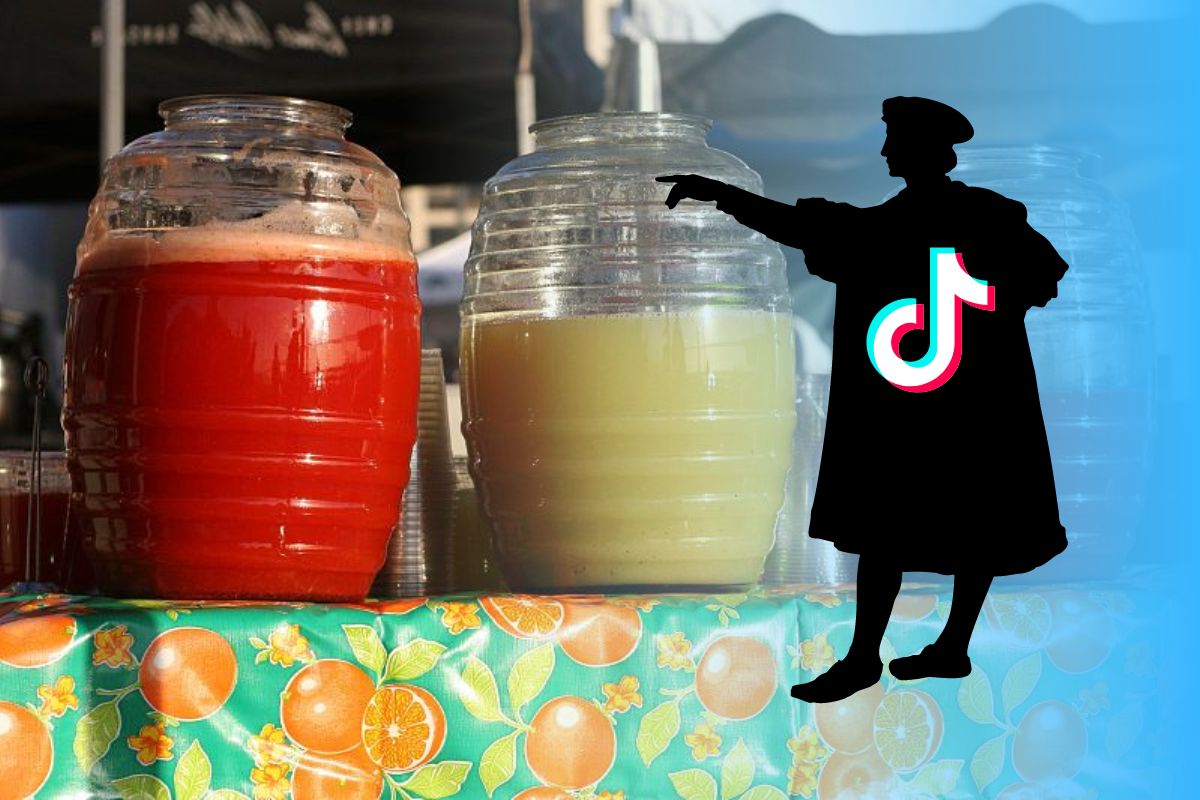TikTok is Speedrunning Appropriation This Summer in The Name of Clean Eating
Call it dirty, find the benefits, rename, rinse, reycycle, repeat.

In the past few weeks on TikTok, there’s been a steady flow of controversies regarding cultural appropriation, and like climate change’s effect on weather in America, it seems to be hitting the Black and Latinx community especially hard. Some of this has been, unfortunately, regular infractions regarding fashion like the recent “clean girl look,” this “Mexican girl core,” and petroleum jelly moisturizing but calling it “slugging”… Regarding the last one, this has been a thing since the beginning of the year, and has come back during the summer of all seasons. This summer, the recycled trend of theft came from “inventing” Latinx dishes.
Some of these foods have an exact one-to-one sign of theft, while others are a bit more complicated but severely inappropriate to “claim” nonetheless. The more obvious appropriations involve calling agua frescas “spa water,” sincronizadas “tortilla snacks,” elote (or elote en vaso if you’re feeling fancy) as “Mexican corn salad,” and, recently (and more negatively), horchatas “mud water.” Most of the videos call these foods “a trend,” and some of the easier ones claim that they invented it.
To the people that always defend cultural appropriation—there’s a clear violation when the practice or product is literally renamed. It’s a total rebrand by those from the outside group. The only “good” thing about this whole situation is people showing these videos to other members of their family and the face of general confusion or shock happening immediately.
One of the more complicated examples is “cowboy caviar.” There’s not a direct dish being stolen from what I can tell. It looks like off-balance salsa, nopales, pico de gallo, or (most likely according to Remezcla) ceviche without the seafood. In addition, due to the complicated history of colonization at the U.S. and Mexico border and the fact Indigenous-based foods from across central and south America use similar ingredients, I avoided attributed to a particular country. However, these dishes have been staples in communities stretching from central Mexico (North America) all the way down to Peru in South America.
Why is this a problem
Because these rapidly occurring “trends” are acting as just cultural gentrification, a lot of the same patterns pop up. The first thing is that people who made these things start to get priced out. The last year or so, TikTok has priced out many Black communities out of Oxtails, and a similar issue is burgeoning within various Caribbean nations. Despite the affordability of sliced bread and avocados, the trendiness of avocado toast over the last decade coincided with the clean eating movement and increased price. This didn’t translate to better pay for farmers, but instead, it went to the wealthier class with the capital for mass investment and marketing teams who got to “sell it” to a new audience.
This “clean eating movement” combined with the ever-changing trend to finding the secret to clear skin has done the same thing with many of the aforementioned Latin American foods. “Spa water” (agua fresca) is sold to viewers on TikTok as a way to hydrate your body and tastily ingest antioxidants. Cowboy caviar and something called “skin boosting taco” (which are common ingredients in tacos) are sold in the same way. Just the regular hashtags for these sit at 108 and 118 million views, often times selling it on the healthier aspects.
In addition to Latinx creators like @YourLatinaNurtrionist, Asian American TikTokers like @Soogia have pointed out how this is a problem across the board. This is not a TikTok problem or a new problem, but it happens at rapid speed on the platform. Many “ethnic” foods are declared gross, dirty, and unhealthy (look at the cycles of MSG attacks) until outside groups—often white—take it and dubb it healthy, actually. This is not just a point and thumbs up. Social capital is gained by being the Columbus of this new food and in that spirit, naming it what you think it is rather than what it actually is (see Indians.)
(via TikTok, featured image: Alyssa Shotwell and Eric Heath)
—The Mary Sue has a strict comment policy that forbids, but is not limited to, personal insults toward anyone, hate speech, and trolling.—
Have a tip we should know? tips@themarysue.com